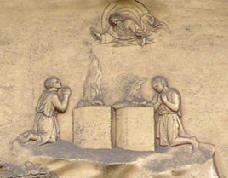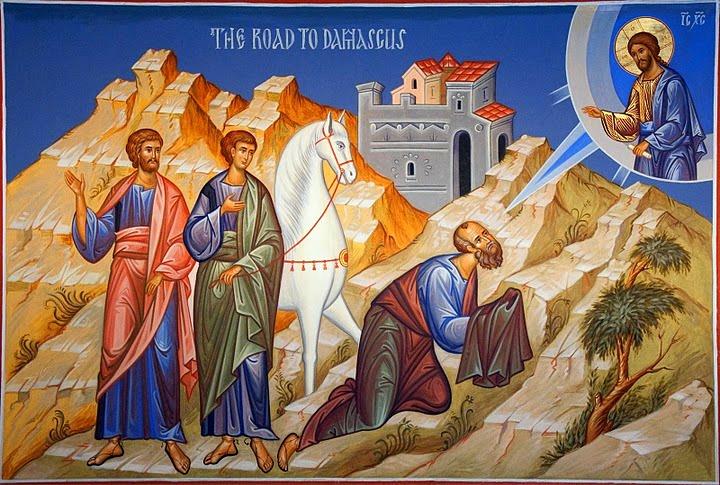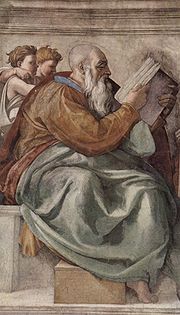"And in process of time it came to pass that Cain brought of the fruit of the ground an offering unto the Lord. And Abel, he also brought of the firstlings of his flock, and of the fat thereof: and the Lord had respect unto Abel and to his offering. But unto Cain and to his offering he had no respect: and Cain was very wroth, and his countenance fell.
"And the Lord said unto Cain, Why art thou wroth? And why is thy countenance fallen? If thou do well, shalt thou not be accepted? and if thou doest not well, sin lieth at the door: And unto thee shall be his desire, and thou shalt rule over him.
"And Cain talked with Abel his brother: and it came to pass when they were in the field, that Cain rose up against Abel his brother, and slew him." [KJV]
This passage has always bewildered me. What did it mean for sin to be waiting at the door? I chose the KJV here, instead of my accustomed ESV, because of its use of "him" here, rather than "it."

I am reading On the Atonement and Intercession of Jesus Christ, by the Covenanter William Symington, and he references this text as an underlying reference to atoning sacrifice, as a type and preparation of the coming crucifixion of Jesus, the Lamb of God who takes away the sins of the world. According to him, the Hebrew word used here, "khatta't," can mean either "sin" or "sin offering." However, when used for "sin", the grammatically-feminine word takes feminine modifiers, while its use for "sin offering" takes masculine modifiers. That's why I used the KJV here, which refers to "him" in place of the ESV's "it."
Symington suggests that God's admonition isn't a warning that sin lies at the door, which he calls a tautology. That is, if Cain does wrong, then he is a sinner, it isn't something of which he need beware. Rather, God encourages Cain with the promise that his sin has an answer, the atoning sacrifice of the lamb outside the door, over which Cain has mastery. Compare Leviticus 3:2, which describes the peace offering killed "at the entrance" of the tabernacle, later the temple. Cain then rejects God's gracious offer, even to the extent of murdering his righteous brother. Thus is the writer of Hebrews justified in writing (11:4) that God accepts Abel's sacrifice because of his faith. Yet, Cain, who apparently received greater revelation concerning sacrifice, rejects God's chosen lamb - both in type and antitype - and instead substitutes his own vegetable offering, i.e., his own works in place of God's gracious atoning sacrifice.
Ah, now both the Genesis and Hebrews passages make much more sense to me!























